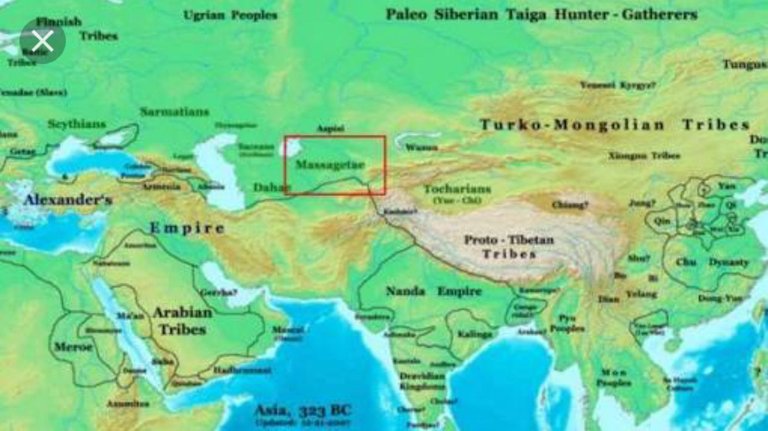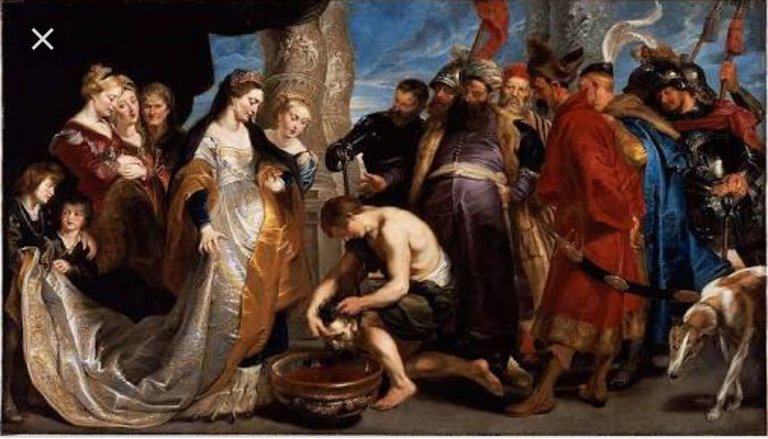
 Tomyris killed Cyrus the Great to avenge her son’s death and put head of Cyrus in a bowl filled with his blood
Tomyris killed Cyrus the Great to avenge her son’s death and put head of Cyrus in a bowl filled with his blood
Tomyris was an ancient ruler of the Massagetae, a Scythian pastoral-nomadic confederation in Central Asia. She became famous for her bravery and especially for the greatest battle she ever fought – the day when Cyrus the Great died.
Tomyris’ kingdom was located in the area to the east of the Caspian Sea, in parts of modern-day Turkmenistan, Afghanistan, western Uzbekistan, and southern Kazakhstan. Most people remember Tomyris for her role in the defense against an attack by Cyrus the Great of the Achamenind Empire (600/ 576 – 530 BC). In 530 BC, she may have killed one of the most famous Persians in history.
Herodotus wrote that there were a few different stories about the death of Cyrus, and includes Tomyris as one of the possible causes for his demise. The story of Tomyris is also included in books by Strabo, Polyaenus, Cassiodorus, and Jordanes. However, the earliest writing about her comes from Herodotus, who lived from 484 to 425 BC.
The name of Tomyris and her son Spargapises, have roots in Persia, but the Hellenic forms of their names are most commonly used. Spargapises was the head of his mother’s army. During the battles mother and son fought together.
The Massagetae Kingdom
There is little information about the cultural roots of Tomyris’ kingdom, but according to Ammianus Marcelinus, the origins of the Massagetae may have been the kingdom Alans (Indo-Iranians). They migrated westwards and became the dominant power in many parts of Asia and influenced Europe.
Procopius of Caesarea (500 – 560 AD) wrote in his History of the Wars Book III that the Massagetae were known in his times as the Huns. Evagrius Scholasticus (6th century AD) mentioned that the people known as the Huns, who were formerly known by the name of the Massagetae, appeared in Thrace.
Herodotus was the only one who left a clear description of the Massagetae culture:
“In their dress and mode of living the Massagetae resemble the Scythians. They fight both on horseback and on foot, neither method is strange to them: they use bows and lances, but their favorite weapon is the battle-axe. Their arms are all either of gold or brass. For their spear-points, and arrow-heads, and for their battle-axes, they make use of brass; for head-gear, belts, and girdles, of gold. So too with the caparison of their horses, they give them breastplates of brass, but employ gold about the reins, the bit, and the cheek-plates. They use neither iron nor silver, having none in their country; but they have brass and gold in abundance.”
The Most Important Battle in the History of the Massagetae
During the first attacks on the Massagetae, Cyrus was the winner. The Persians didn't see the small kingdom in the heart of Central Asia as dangerous enemy. They had already faced so many bigger and more famous armies, that the soldiers led by a woman and her son didn't seem to be a difficult rival.
According to ancient descriptions, the Persians won the first battle due to a very clever trap. They decided to leave the camp, which contained a rich supply of wine, and allowed the Massagetae to enter it. The Scythians were not used to drinking wine so they got drunk immediately. The Persians then returned to the camp and attacked their enemies. Among the captured soldiers of Tomyris’ army was her son, who asked Cyrus for permission to commit suicide.
Tomyris was a fearless leader, but the pain of a mother who lost her son made her stronger than ever before. When she sent a message to Cyrus, he ignored her. She then challenged him to a second battle and the Persians believed that the second one would be already won before it even started.
However, this time Tomyris was well prepared and her army blocked the quick avenue of escape for Cyrus and his army. She led her army to victory over the Persians and saved her land, but also avenged the death of Spargapises.
Hi! I am a robot. I just upvoted you! I found similar content that readers might be interested in:
http://www.ancient-origins.net/history-famous-people/tomyris-female-warrior-and-ruler-who-may-have-killed-cyrus-great-005423